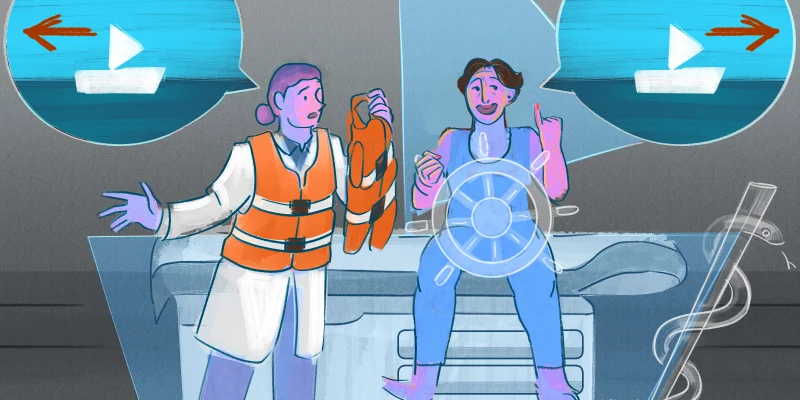I spent the early part of my childhood growing up in a small town in Southeast Alabama, raised in a family where what you thought was not what you said, particularly if what you were thinking ran the risk of sounding rude. To insult someone, or even insinuate an insult, was to scandalize oneself (even if it was the truth). Certain topics were especially difficult to broach, particularly body size.
I learned from an early age that being overweight was a bad thing, yet it didn’t seem to be rare in my world. My life at home and school were espoused in talk of diets: buttered rice and strawberries three times daily, or only cabbage soup. Between the adults in my life and the girls I went to school with, it was a constant topic. I knew the shame they felt but didn’t understand why and I certainly was not able to ask. This was problematic occasionally throughout my life, but most so when I began working in health care. My fear of honesty led me to avoid conversations about weight when possible.
My experiences as a student had not done much to help with the awkwardness of these conversations. I had both the benefit and the disadvantage of seeing how this was addressed by other clinicians. As society has trended more toward a body positive approach, I haven’t found that medicine has followed. From the bold statement of, “Madam, what you are is too fat,” to the uninspiring, “There is a skinny person inside of you ready for you to let them out,” I’ve heard a lot of approaches. Most of these encounters were with patients who had struggled with their weight and were not strangers to the conversation. I watched similar reactions: pleasant nods and an air of disappointment seemed common. It reinforced my discomfort with discussing weight — I had not seen a way that I considered to be both effective and kind, and was unsure of where to even begin.
As a nurse practitioner, I found I had an easier time discussing positive pathology reports than weight. Discussing pathology reports was easier because it was the cancer we were discussing: the entity that might have come from a previous behavior (like smoking) but typically was not something that a patient had great control over. Avoiding known carcinogens does not guarantee that you will never have cancer. As a foil to this, our weight seems to be very much within our control, even when it really isn’t. There is a perception that people who are overweight are obviously doing something wrong, and therefore the conditions that came along with being overweight are being allowed by the patient. I didn’t subscribe to that line of thinking and still don’t.
I will not pretend that there is not plenty of data to support the correlation between increased body weight and diabetes, cardiovascular disease, and certain cancers. Yet there are plenty of people who have a “normal” BMI who are not healthy. There has got to be a way to change the focus on diet and exercise from size to health, and I think that figuring out a way to balance body positivity with education about weight-related risk for disease is worthwhile. It does no good to shame patients to make certain changes. It can often backfire and prevent patients from seeking care or worse, developing anxiety and depression as a result.
Being overweight is multifactorial. It can result from shift work, living in a food desert (or swamp depending on what data you look at), or from the propensity to prioritize work over exercise and balanced meals. A lot of us fall into one of these categories, but by a mix of genetics, economic stability, or sheer luck, we are not as affected.
Opening the conversation with patients is critical to helping them make the best decisions for their health. Giving patients the space to discuss their diet and exercise habits could be a great way to do this. I want to encourage patients to look more closely at the foods they eat and the activity they engage in, not in a way to correct their behavior, but in a way that allows them to experiment with small adjustments and see how those contribute to overall health. Figuring out a healthy relationship with food and exercise is a big deal. Diet and exercise are health behaviors that I think need a classification of their own. Putting them in the same category as unhealthy habits creates more stigma. We must eat to live, but it is hard to argue the same with tobacco and alcohol.
How have I overcome my discomfort in talking about weight? In short, I haven’t, but I’m working on it. When the topic comes up, I am very conscientious about what I say, and know that it is easy to misspeak. I do not want to ever contribute to someone’s negative body image. This is not just from a place of guilt or avoidance of insult: this is because I don’t think it is right. Finding a way to give patients information about weight without being judgmental is hard. I know I will make mistakes, and I hope that my patients feel comfortable enough to call me out on it when I do. I have been told many times by colleagues that by not discussing obesity in a “brass tacks” style lulls the patient into a false sense of health. I disagree. Frank, plain discussions are important between health care providers and patients, but approaching every overweight patient with the same assumptions of laziness and lack of self-control is not the way to do it.
How do you approach conversations about weight with your patients? Share your strategies in the comments.
Blythe is a cardiology NP in the greater New Orleans area. Her special interests include improving social determinants of health in underserved communities and prevention of lateral violence in health care. She is a devoted mother, enjoying sewing and gardening in her spare time. She is a 2021–2022 Doximity Op-Med Fellow.
Illustration by Jennifer Bogartz






